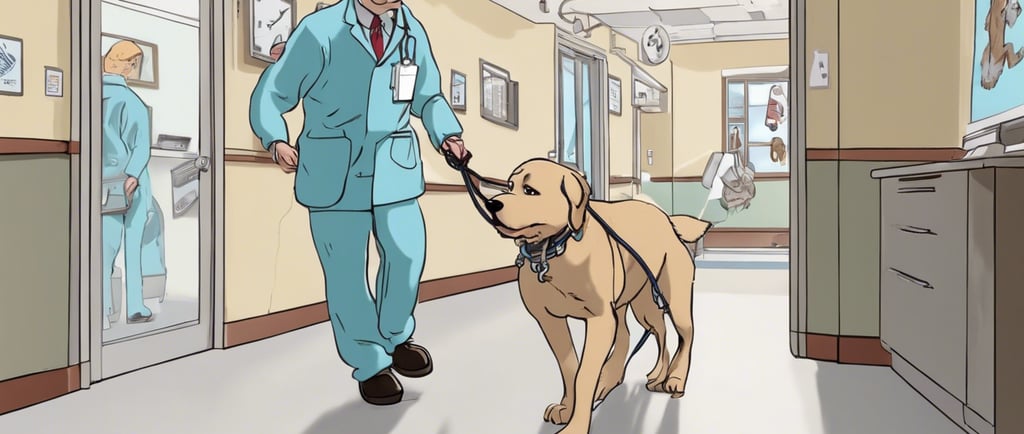Are You Feeding Your Dog Dangerous Foods?
Foods that you might not know about!
10/16/20244 min read


Are You Feeding Your Dog Dangerous Foods ?
It’s easy to think that if a food is safe for us, it’s safe for our dogs too. After all, what harm could a small treat do? Some of the foods we regularly enjoy are toxic to dogs, and even a small amount could lead to serious health problems. In this article, I’ll break down seven common foods you might be feeding your dog without realizing the risks. Don’t worry though—by the end, you’ll know exactly what to avoid, and how to keep your furry friend safe and healthy.
Is chocolate toxic to dogs?
Absolutely. Chocolate is one of the most well-known foods that’s toxic to dogs. I found That my German Shepard destroyed a bag of Ghirardelli chocolate that was on my counter. After a quick panic and a call to the vet, I learned that chocolate contains theobromine, a substance dogs can’t process. Even small amounts can lead to symptoms like vomiting, diarrhea, tremors, and in severe cases, seizures or even death.
I’ll never forget my vet saying, "Even a little bit of chocolate can cause major issues for dogs. Dark chocolate and baking chocolate are especially dangerous." Needless to say, we’ve since become much more careful about keeping chocolate well out of reach!
Can dogs eat grapes or raisins?
I was shocked to learn that grapes and raisins can cause acute kidney failure in dogs, even in small amounts. My vet told me about a case where a dog nearly died after eating just a few raisins from a trail mix. The vet said, "The thing is, we don’t know exactly why grapes and raisins are toxic, but they can cause severe damage to your dog’s kidneys."
Ever since that conversation, I’ve made sure to keep all raisins and grapes far away from my dog’s reach, no matter how much she begs. It’s a scary thought that such a common snack could be deadly.
Onions and Garlic :Why are onions and garlic toxic for dogs?
Onions and garlic are commonly found in our foods, and I used to give my dog leftover meals without thinking twice. But after consulting with my vet, I realized how dangerous these foods are. Onions and garlic contain compounds that can damage a dog’s red blood cells, leading to a condition called hemolytic anemia. The vet explained, "Even small amounts, whether raw, cooked, or powdered, can be toxic to dogs."
She shared a story about a dog who ate onion-infused stew and ended up at the clinic days later, weak and lethargic due to anemia. Since then, we’ve stopped giving our dog any table scraps that might have onions or garlic in it.
Avocados are not as dog friendly as you think: Is avocado toxic to dogs?
I thought avocados were the epitome of healthy food—until I learned that they aren’t safe for dogs. My vet told me, “Avocados contain a toxin called persin, which can be harmful to dogs, especially in large quantities. While the flesh might not be the worst, the pit and skin are very dangerous.”
One story that stuck with me was about a beagle who swallowed an avocado pit, which caused a life-threatening blockage in his intestines. Surgery was needed to save the dog. Now, I’m extra cautious and make sure my pup doesn’t get anywhere near my salads
Xylitol, the hidden danger in everyday foods. What is xylitol, and why is it toxic to dogs?
I had no idea what xylitol even was until my vet educated me about this dangerous sugar substitute. Xylitol is found in sugar-free gum, candies, and even some peanut butters. The vet warned me, "Just a small amount of xylitol can cause your dog’s blood sugar to drop dangerously low, leading to hypoglycemia. In severe cases, it can result in liver failure."
A neighbor’s dog once got into a pack of sugar-free gum and ended up in the ER with seizures. That story was enough to make me double-check the labels of everything in my pantry before offering it to my dog.
Macadamia nuts: small nuts with big risks.
Why are macadamia nuts dangerous for dogs?
I never would’ve thought that macadamia nuts were toxic for dogs, but my vet explained that even a few can cause significant health issues like weakness, tremors, and vomiting. She mentioned a case where a dog got into a bag of mixed nuts and became seriously ill after just a few macadamia nuts. "We still don’t know exactly why macadamia nuts are toxic to dogs, but even small amounts can cause big problems," she told me.
After hearing that, I made sure to keep my favorite nut snacks well out of my dog’s reach.
Can dogs drink alcohol?
I always assumed that dogs naturally avoided alcohol, but my vet set me straight. She explained, "Dogs don’t metabolize alcohol the way we do, and even small amounts can cause vomiting, breathing difficulties, or worse."
I remember a story she shared about a dog who drank some spilled beer at a BBQ. The poor pup ended up disoriented and had to be rushed to the clinic for treatment.
Final Thoughts
Since learning about these toxic foods, I’ve made it a habit to always double-check before giving my dog anything that isn’t specifically made for dogs. A quick consultation with my vet saved my dog from a lot of unnecessary health risks, and it’s important to always err on the side of caution.
If you ever find yourself unsure about whether a certain food is safe for your dog, don’t hesitate to ask your vet. Prevention is always better than a trip to the emergency clinic!
Key Takeaways:
Chocolate: Toxic due to theobromine.
Grapes & Raisins: Can cause kidney failure in dogs.
Onions & Garlic: Harm red blood cells, leading to anemia.
Avocados: Contain persin, harmful to dogs.
Xylitol: Found in sugar-free products, causes hypoglycemia.
Macadamia Nuts: Can cause tremors, vomiting, and lethargy.
Alcohol: Even small amounts are toxic to dogs.
Always consult with your vet if you're unsure, and keep these foods far away from your beloved pup to ensure they stay happy and healthy!

